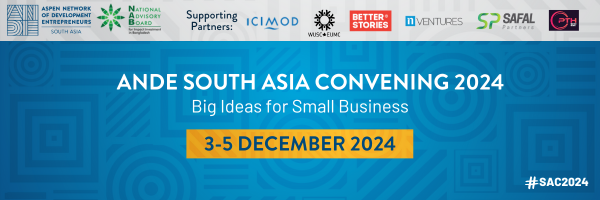
South Asia Convening 2025, Day 1: Strengthening Regional Ecosystems for Small and Growing Businesses
Experts explored climate-resilient entrepreneurship, the potential of venture studios, and digital infrastructure as key drivers for SGBs growth in South Asia.
The future of South Asia’s entrepreneurial landscape depends on fostering ecosystems that enable small businesses to thrive. As economies navigate challenges posed by climate change, digital transformation, and financial accessibility, the ANDE South Asia Convening 2024 opened with critical discussions on ecosystem-building strategies.
From climate-smart business models to innovative venture support systems and digital solutions, Day 1 set the tone for meaningful change, bringing together leaders and changemakers dedicated to empowering small and growing businesses (SGBs) across the region.
Session 1: Climate-Resilient Businesses: The Power of Incubation in Mountainous Regions
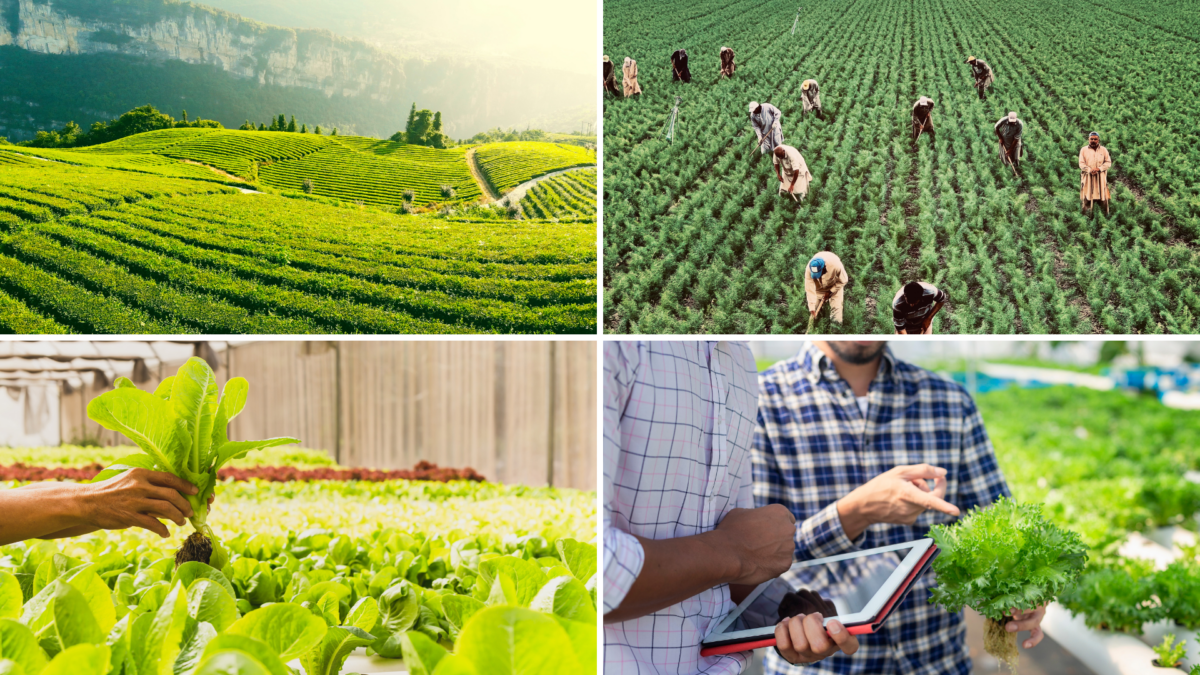
Anu Shrestha Joshi (ICIMOD Nepal) underscored the vulnerabilities of mountain communities facing climate change, emphasizing the need for targeted entrepreneurship and investment in climate adaptation. Samanata Thapa (Startup Discovery Asia) shared her organization’s initiatives to bridge investment gaps, foster inclusivity, and create green jobs through competitions and mentorship programs.
Erad Kawsar (Build Bangladesh) and Adnan Faisal (ScaleX) showcased impact-driven businesses addressing climate challenges. Examples included Green Dye, an organic dye startup combating river pollution, and Pop Tower, a venture harvesting rainwater for communities. Gerrit Jan van ‘t Veen (World Startup) emphasized the importance of system-wide change in fostering social and environmental entrepreneurship.
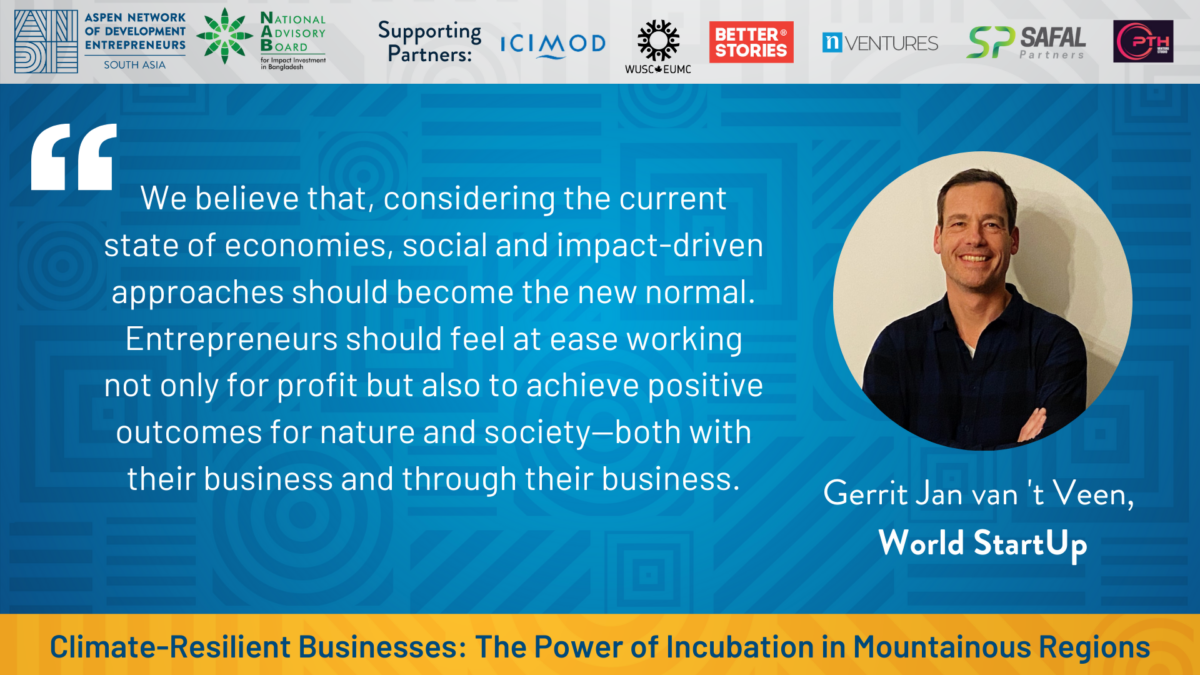
Session 2: The Venture Studio Debate: Is South Asia Ready?

Gigi Mathews (Enviu) outlined how venture studios offer a structured, collaborative approach to building sustainable businesses. Chalinda Abeykoon (nVentures) argued for an investment-first model to drive scalability, while Minhaz Anwar (BetterStories) called for stronger ecosystem support to bridge infrastructural gaps and improve founder readiness.
The discussion also explored cultural perspectives on failure. Omar Abedin (PTH Venture Studio) stressed the importance of reframing failure as a learning opportunity and highlighted the role of venture studios in equipping startups with strategic guidance and investment readiness.
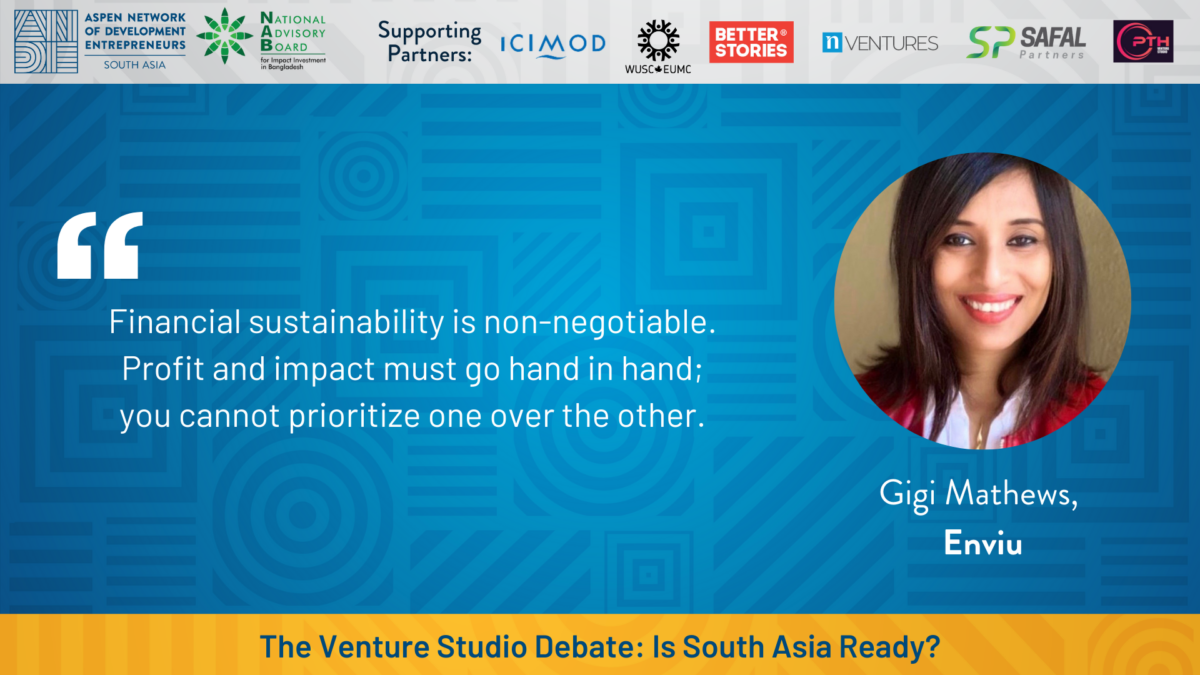
Session 3: Future-Proofing SMEs: The Power of Digital Infrastructure

Santona Malakar (SAFAL Partners) positioned digital infrastructure as a critical enabler for SGBs, likening its transformative role to that of physical roads and bridges. Radip Tandukar (GeoKrishi) shared how digital agriculture platforms are empowering farmers in Nepal with market access and financial tools.
Gihan Mendis (EngenuityAi) introduced an intelligent farm management tool providing free, AI-driven support to small farmers. Abhishek Modi (Satwa Knowledge Institute) highlighted India’s Digital Public Infrastructure (DPI) initiatives, emphasizing the importance of collaboration among society, government, and markets in scaling digital solutions.
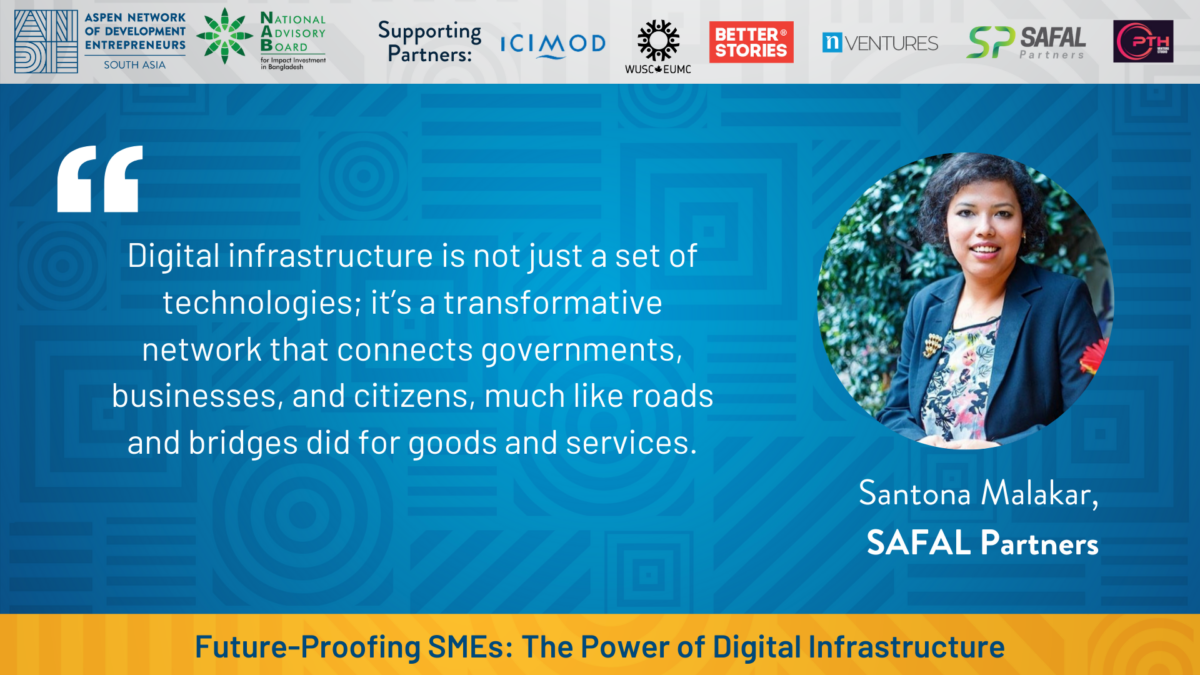
Looking Ahead
The conversations from Day 1 underscored the urgent need for innovation, collaboration, and investment to drive entrepreneurship in South Asia. Climate adaptation strategies, inclusive funding mechanisms, and digital transformation are no longer optional but necessary for the survival and growth of small businesses. As ANDE’s convening progresses, these discussions will shape future policies and partnerships, setting a foundation for resilient and sustainable economic development across the region.
